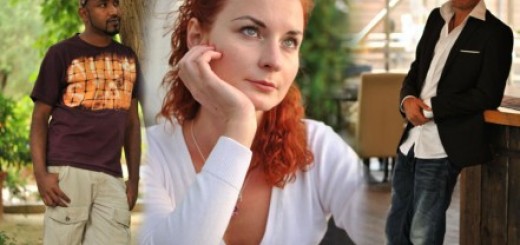It’s what you do with what you have……
On the third day Esther put on her royal robes and stood in the inner court of the palace, in front of the king’s hall. The king was sitting on his royal throne in the hall, facing the entrance. When he saw Queen Esther standing in the court, he was pleased with her and held out to her the gold sceptre that was in his hand. So Esther approached and touched the tip of the sceptre.
Then the king asked, ‘What is it, Queen Esther? What is your request? Even up to half the kingdom, it will be given you.’
‘If it pleases the king,’ replied Esther, ‘let the king, together with Haman, come today to a banquet I have prepared for him.’
‘Bring Haman at once,’ the king said, ‘so that we may do what Esther asks.’
So the king and Haman went to the banquet Esther had prepared. As they were drinking wine, the king again asked Esther, ‘Now what is your petition? It will be given you. And what is your request? Even up to half the kingdom, it will be granted.’
Esther replied, ‘My petition and my request is this: If the king regards me with favour and if it pleases the king to grant my petition and fulfil my request, let the king and Haman come tomorrow to the banquet I will prepare for them. Then I will answer the king’s question.’ Esther 5:1-8
 Esther appears to be playing a good game. She knows what she’s doing. She’s taking things slowly, that’s for sure. Slowly reeling the king and his right hand man, Haman, in. She’s beautiful and intriguing.
Esther appears to be playing a good game. She knows what she’s doing. She’s taking things slowly, that’s for sure. Slowly reeling the king and his right hand man, Haman, in. She’s beautiful and intriguing.
She’s waited for the Jewish people to fast for three days on her behalf. They are now all focussed on her, rooting for her success. She has her people behind her. She has done what she feels is necessary to be heard by her God. She can rely on his protection and deliverance.
She’s presumably taken a lot of care over her appearance. She has dressed appropriately in her royal robes. And then she doesn’t just barge straight in to the king’s presence. She doesn’t demand an audience. She loiters outside the king’s hall, so that he will see her from his throne and invite her in.
She is polite, respectful, composed. She is not distracted by the king’s offer of half of his kingdom. She is not greedy. She invites the king and Haman to a banquet. And then when the king poses the same question again, she invites the two of them to another banquet. She will give him an answer then. She keeps the king hanging.
Esther is a very special lady. She combines beauty and wisdom.
And so if we see beauty as a gift, then she uses her gift wisely. With humility. She does not throw her weight around. She is not full of herself. She does not fall into the trap of thinking she is more important than she is. She doesn’t rush into anything.
Unlike Haman.
Haman went out that day happy and in high spirits. But when he saw Mordecai at the king’s gate and observed that he neither rose nor showed fear in his presence, he was filled with rage against Mordecai. Nevertheless, Haman restrained himself and went home.
Calling together his friends and Zeresh, his wife, Haman boasted to them about his vast wealth, his many sons, and all the ways the king had honoured him and how he had elevated him above the other nobles and officials. ‘And that’s not all,’ Haman added. ‘I’m the only person Queen Esther invited to accompany the king to the banquet she gave. And she has invited me along with the king tomorrow. But all this gives me no satisfaction as long as I see that Jew Mordecai sitting at the king’s gate.’
His wife Zeresh and all his friends said to him, ‘Have a pole set up, reaching to a height of fifty cubits, and ask the king in the morning to have Mordecai impaled on it. Then go with the king to the banquet and enjoy yourself.’ This suggestion delighted Haman, and he had the pole set up. Esther 5:9-14
 Haman is happy because he has been treated with special favour by the Queen. But he soon becomes angry when one man, Mordecai, does not show him the respect he feels he deserves. He is boastful. He feels superior. He is full of his own self-importance. He needs everyone to know and see how special he is. How foolish all of this seems in comparison to Esther’s wise humility.
Haman is happy because he has been treated with special favour by the Queen. But he soon becomes angry when one man, Mordecai, does not show him the respect he feels he deserves. He is boastful. He feels superior. He is full of his own self-importance. He needs everyone to know and see how special he is. How foolish all of this seems in comparison to Esther’s wise humility.
But he can’t stop thinking about Mordecai. He can’t let it lie. He is filled with bitter resentment. He will get his revenge. He listens to those who are fooled by his favour and riches. He will not rest until Mordecai’s head is on that pole.
The message from this chapter is pretty clear, isn’t it? You don’t need me to spell it out.
 It’s not just what you have that matters. It’s as much about how you use it and your attitude to it as what you have. Like money. Or a good job. Or sporting prowess. Or academic qualifications. Or natural good looks. Etc etc etc.
It’s not just what you have that matters. It’s as much about how you use it and your attitude to it as what you have. Like money. Or a good job. Or sporting prowess. Or academic qualifications. Or natural good looks. Etc etc etc.
So that’s all I’ll say. The rest is for you to work out.












